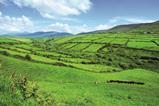Government has set up two new bodies with the aim of tackling the issues facing food production in the UK. But, says JP Garnier, without clear, harmonious priorities and proper industry representation, they may end up producing nothing more tangible than hot air.
The farming crisis is worsening. According to the Department for Environment, Food & Rural Affairs (Defra), in 2023/24, on lowland grazing livestock farms, average Farm Business Income (FBI) fell by nearly a quarter to £17,300. For grazing livestock farms in Less Favoured Areas (LFA), the average income was 12% lower than 2022/23, at £23,500, with higher fixed costs only partially offset by an increase in output. These figures include farm support.
In Scotland, official statistics from the Farm Business Survey show a 51% fall in average farm incomes in 2023/24. Particularly hard hit are livestock producers, with lowland cattle and sheep farm incomes plummeting by 87%; 68% of these farms are now loss-making. In Wales, official statistics show that following a major fall last year, estimated average farm income rose by 23%, to a lowly £23,000. The Department of Agriculture, Environment and Rural Affairs (Daera) reports farm income in Northern Ireland fell from £51,043 to £27,345 (-46%). With more cuts to farm support in the offing, the outlook is dire.
With around 40% of the food consumed in Britain now produced abroad, without any guarantee of reliable and sustainable supply, more voices are warning of the increasing fragility of supply chains. Wishful thinking regarding sourcing strategy is rife. For instance, Defra’s 2024 Food Security Report identifies some of the problems but does not offer any solutions to the conundrum. Incidentally, my 32-point request regarding the report to Defra remains unanswered.
I quote: “The Food Strategy Advisory Board (FSAB) will bring together senior leaders from across the food system, representing a wealth of experience and expertise to advise on a clear vision and framework for change, as part of the Government’s Plan for Change.”
Meat industry representatives to “expose simple solutions”
Despite their roles as the producers of food, there is only a single farmer on the board, Sam Godfrey, a pig producer. Let’s hope that he, and the meat processing representatives, Tim Smith of Cranswick and Ash Amirahmadi of Sofina Foods, can expose the simplistic scientific and economic solutions to the current food crisis promoted by vested interests and so-called ‘independent’ academics. Also, one ominously notes, the Institute of Grocery Distribution (IGD), as a retail trade association, is the joint secretariat of the Board.
For Government, creating a talking shop to advise on a “clear vision” is a good thing, but creating two is even better. The Government’s Review of Farm Profitability, headed by former NFU president Baroness Minette Batters, has been created in response to falling farm incomes. Yet, the terms of reference do not inspire much confidence in the output. Unsurprisingly, the onus is once again put on farmers to increase profitability by “embracing innovation”, “reducing barriers to profitability”, “improving productivity” and “using risk management tools”. The same recipes have been tested since the agricultural revolution, some 250 years ago.
The Farm Profitability review’s second chapter is more promising, as its aims to explore “how the supply chain can support farm profitability”. With British consumers clamouring for cheaper food and with the pressure of retailers and tertiary processors on price and profitability, it will be revealing to see how this equation can be squared.
The third chapter aims to investigate “other ancillary activities that farmers can undertake to support profitability”. This means doing something other than producing food – an attractive option nowadays for landowners but a contradiction with the goal of food security. Unsurprisingly, the role of Government is obfuscated in the terms of reference.
No wonder confidence in the farming community is at an all-time low.

















